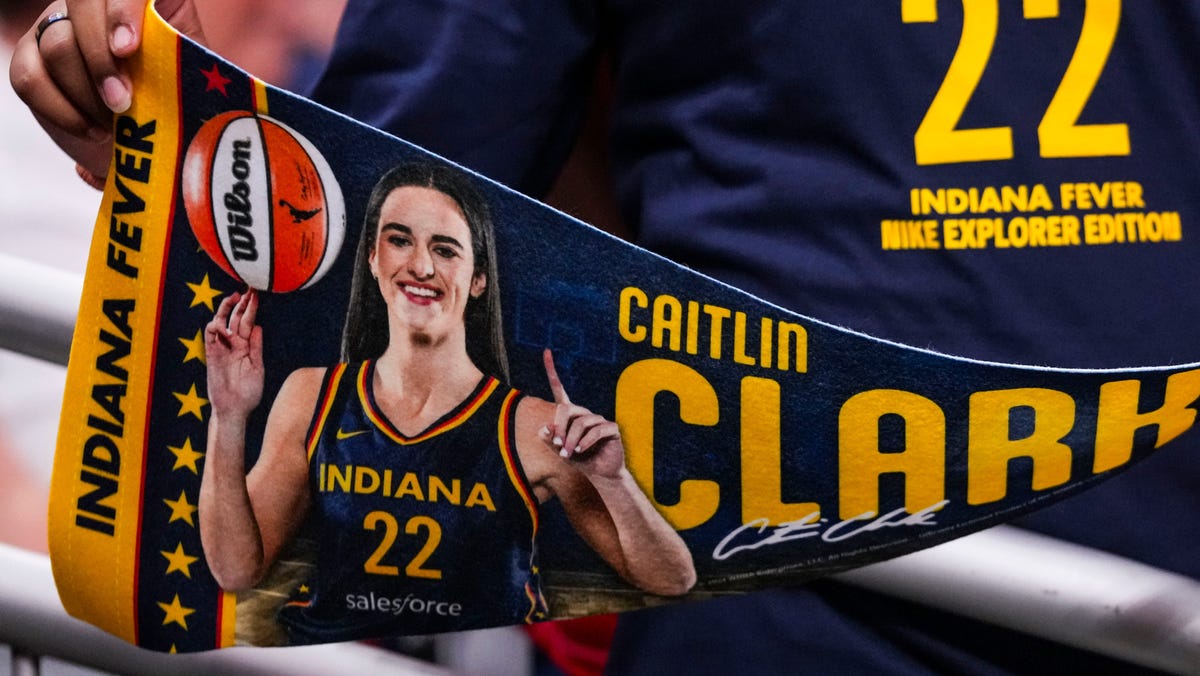Caitlin Clark and Patrick Mahomes’ Neutral Stance Reflects a Time of Athlete Activism Like Michael Jordan’s
Not all athletes can take the same bold stand as LeBron James or Megan Rapinoe.
Remember Michael Jordan’s famous remark about how Republicans buy his sneakers? There’s a long tradition of athletes steering clear of controversies, and this past week, Caitlin Clark and Patrick Mahomes did just that.
When asked about their potential support for candidates in the upcoming presidential election, both Clark and Mahomes chose to sidestep the question, opting instead to advocate for voter registration and participation.
“While their statements are better than saying nothing, they don’t place them in the thick of the debate,” explained David Niven, a political science associate professor at the University of Cincinnati, who teaches sports and politics.
“From LeBron James’ perspective—who is very vocal about his views—these responses could be seen as a retreat. However, viewed through the lens of Derek Jeter or Michael Jordan, you could argue there’s still a significant amount of political engagement.”
These days, many expect athletes to take a political stand. For instance, James stood beside Hillary Clinton in 2016 and co-founded a group focused on preserving voting rights for Black Americans four years later. Similarly, Rapinoe was an early supporter of Joe Biden and humorously offered to team up with him.
In 2020, the WNBA played a pivotal role in flipping the U.S. Senate, and this year they utilized their Commissioner’s Cup to raise funds for voting access and reproductive rights.
Nonetheless, this level of political involvement from individual athletes is a relatively recent trend.
Despite their notable activism, figures like Muhammad Ali, James Brown, and Billie Jean King were exceptions rather than the rule. Most star athletes followed the more conservative approaches of Jordan, Jeter, and Tiger Woods, who typically refrain from statements that could alienate fans or jeopardize sponsorships.
“There’s definitely a risk involved when engaging in political issues,” said Niven, who examined the contracts of NFL players who protested police brutality and found they were often worth less than those of their non-protesting peers.
“Speaking out or acting on one’s beliefs can have tangible consequences.”
Clark’s Instagram has been inundated with negative remarks from fans unhappy about her liking a post by Taylor Swift that endorsed Kamala Harris. Meanwhile, Mahomes faces criticism from those wanting him to distance himself from his wife’s alleged political views, as well as from those upset he hasn’t defended those views.
This situation goes beyond merely offending some supporters; there’s a considerable segment of the population that seems increasingly volatile, which may lead athletes to worry about their own safety if they speak out.
Think that’s exaggerated? Just the other day, Springfield, Ohio’s city hall was evacuated due to a bomb threat linked to the racist claims made by Donald Trump and his running mate JD Vance.
On another note, prominent athletes realize they cannot remain silent.
Clark, especially, plays in a league where taking a stand on societal issues is as critical as defensive strategies. When the presidential choice involves a former prosecutor and woman of color who strongly advocates for reproductive rights versus a serial opportunist with a history of racist behavior, it’s inevitable that the top players will be approached for their opinions.
By urging people to register and vote, Clark and Mahomes managed to express a position without putting themselves in jeopardy.
“It’s a way to compromise,” Niven noted. “There’s a degree of innocence in it, coupled with a bit of security.”
While elite athletes possess extraordinary physical talents and exceptional focus, finding moral courage is a personal journey, and this week served as a reminder that such bravery is not common.
Follow YSL News Sports columnist Nancy Armour on social media @nrarmour.

